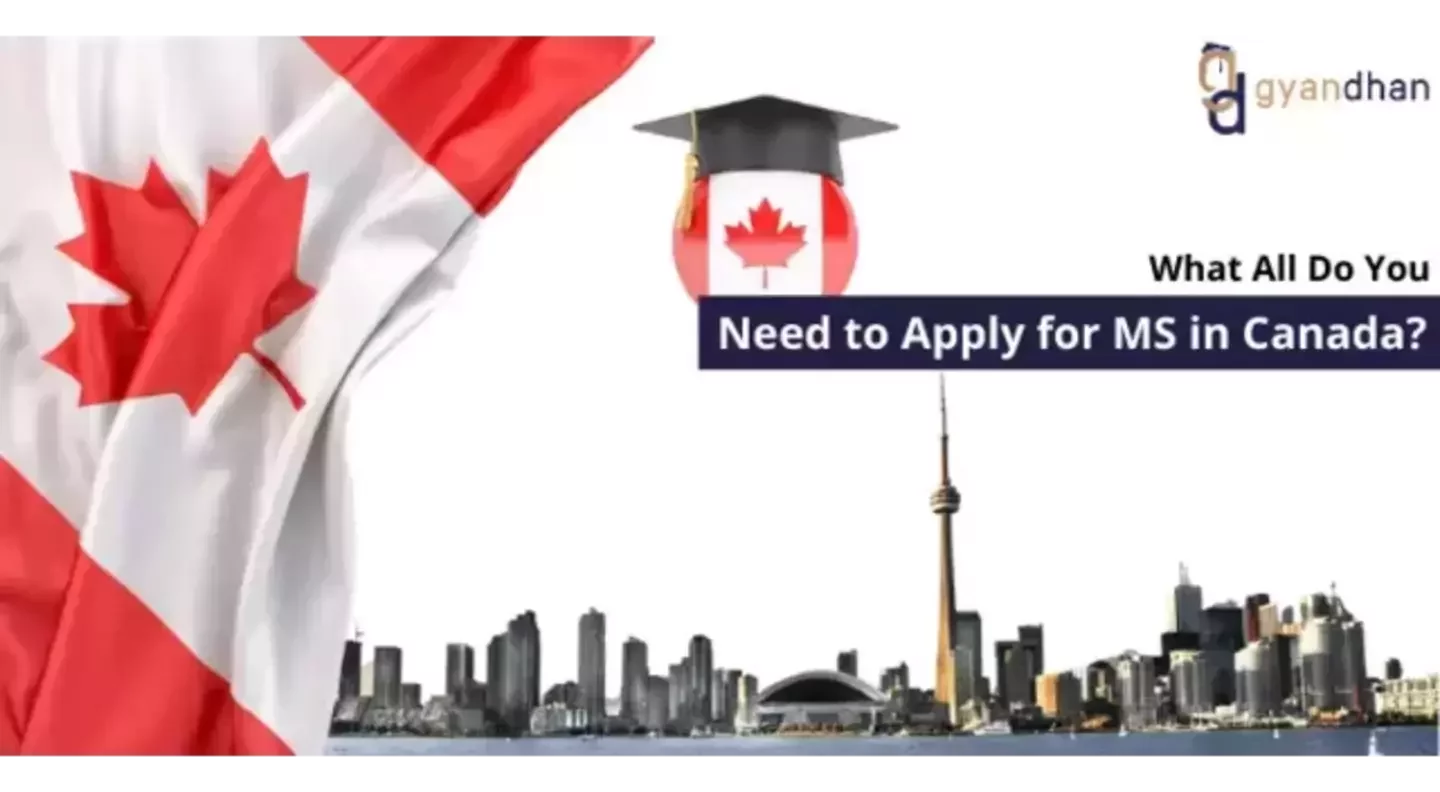Get instant loan offer suitable to your profile !


On this Page:
For applying for an MS in Canada, you would need the scores of IELTS, TOEFL, GRE along with being academically eligible. Apart from that, you would also need Statement of Purpose and a stellar Letter of Recommendation in order to maximise your chances of gaining admission.
Canada provides students a platform where they can experience a unique multicultural environment in a safe and beautiful North American country. Around 200,000 international students and researchers choose to study in Canada each year. Since the spread of COVID-19, Canada has become a new favorite for study abroad aspirants around the world. Seeing the opportunity, the Canadian government has allowed the grant of a post-study visa even if a student is taking the classes online.
This article will brief you about what all you need to apply for an MS program in Canada.

Most of the universities in Canada require 16 years of education or a four-year Bachelor’s degree. Some of the programs offered in India, such as BSc, BCom, and BA, which are of three years, limit the formal education to 15 years. While there are some universities which accept 15 years of formal education as well, it is advisable to either complete either a Master’s program or a one year PG Diploma in India before applying to Canadian universities.
Usually, applicants are expected to have a minimum GPA (often of 3.0/4.0 or its international equivalent). For Indian students, a first Class/Division 1 (65%) or Very Good (8 on a 10-point scale) is the general academic criterion.

In case your previous studies do not match the minimum academic requirements laid down by your target universities – you can get enrolled in a one-year pre-Master program offered by a local university to bridge this gap. Preparation courses in Canada also include academic English language training, which helps international students meet the university language requirements.
To get admitted to a Canadian University, you will need to have a TOEFL/IELTS score. Certain courses in top universities require the GRE score as well. Next, we touch upon these standardized tests and a few other requirements.


The Graduate Record Examination has three main divisions: Analytical Writing, Verbal Reasoning, and Quantitative Reasoning. GRE requirements vary in accordance with the program of study, and your target program may not even require it.
Read Also: How to prepare for GRE ?

These tests assess your command of the English language. Most top universities prefer a TOEFL score of more than 90, or an IELTS score of more than 6.5.
Read Also: How Important is the TOEFL Score?

A letter of recommendation, also known as a letter of reference plays a big role in your admission in MS courses. Universities want to hear about you from people you’ve worked with. These letters should ideally supplement the story being brought about by other parts of your application. For MS in Canada, most universities require at two to three recommendation letters.
Read Also: Importance of The Letter Of Recommendation

For admissions to Masters programs, most universities in Canada require a Statement of Purpose (SOP). The SOP details your reasons for applying for the program and gives the faculty assessing your application their most significant impression of you as an individual. Submitting a well-written SOP plays a pivotal role in getting the admission. It is smart to take an expert’s help in the SOP evaluation beforehand. GyanDhan offers SOP evaluation from the experts that are best in industry. With GyanDhan, you can get your SOP evaluated with helpful comments and suggestions at highly discounted rates!
Read Also: How to Write a Killer Statement of Purpose?

Some universities also require an up-to-date resume along with the application. Use your resume to highlight those achievements that make you the ideal candidate for the given program.
We know that applying for a Masters Program is a long and tedious process, and hope that this article will help you navigate the journey.

The admission process for MS in Canada involves many steps that one can get confused during the procedure. Expert help in the application process can be highly favorable for you to comprehend everything. With right admissions counseling, you ace MS in Canada application process without any problem. You can contact GyanDhan for admission counseling and rest assured you get end-to-end help in every step.
Read more about: Education Loan Options for MS in Canada
Check Your Education Loan Eligibility

Ask from a community of 10K+ peers, alumni and experts
Trending Blogs
Similar Blogs

Network with a community of curious students, just like you
Join our community to make connections, find answers and future roommates.. Join our CommunityCountry-Wise Loans
Best Lenders for Education Loan

ICICI Bank

Axis Bank

Union Bank

Prodigy

Auxilo

Credila

IDFC

InCred

MPower

Avanse

SBI

BOB

Poonawalla

Saraswat